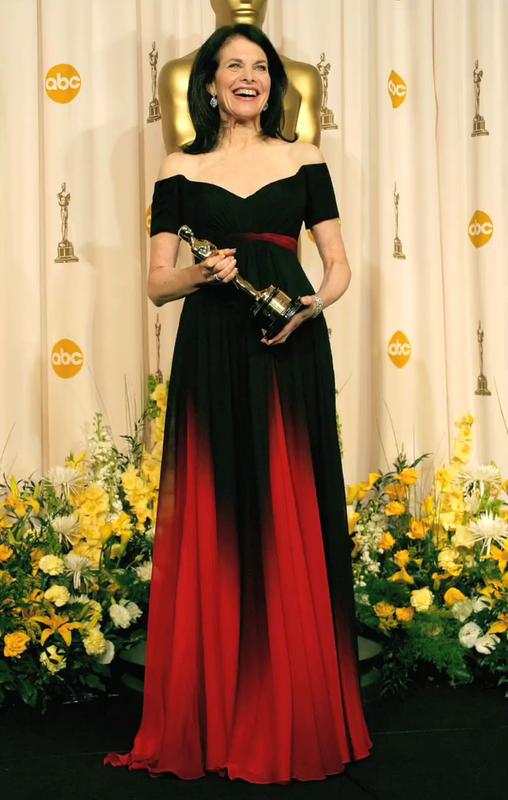|
Anyone who knows me personally knows that I look up to Sherry Lansing, previous CEO/President of Paramount Pictures and successful movie producer.
I recently reread this 1995 NY Times article that I had kept bookmarked in my browser for the past few years. It's an article where Sherry discusses her financial situation and her thoughts about money. The biggest surprise for me is how frugal and normal she still is after having such massive career and financial success. I think her attitude is admirable and something we should all keep in mind for our financial futures. Some tidbits from the article worth repeating: Even today, having accumulated an ostrich-sized nest egg of tens of millions of dollars from producing hits like "Fatal Attraction," "Black Rain," "Indecent Proposal," "The Accused" and "School Ties," Ms. Lansing is still leery about her financial future. Her film credits may reflect a passion for high-voltage drama, but when it comes to investing, the last thing she wants is a thriller. She has nothing against investing; she just won't do it unless she knows all about what the money is being invested in, and she believes that is generally impossible. Film she knows. "If I take a risk with a film," she said, "I know every in and out." But outside the movie business, "I don't know enough," she said. "I worked hard for my money. The idea of turning it over to someone else to manage and putting my fate in their hands is inconceivable. I know my business, but I never thought I knew anyone else's business. And I am not a person who likes to abdicate control of my financial interests." The only exception to her Treasury bills and CD's is a big wad of stock in Viacom Inc., the owner of Paramount, where she has been since 1992. "I want to sleep well at night," she said over breakfast at the St. Regis. Her Hollywood uniform hinted at both her success and her caution: a conservative brown Armani pants suit, with a black turtleneck and high heels. "I have enough money, and I don't want to worry about it." What made Ms. Lansing such a wary investor? No trial and error was involved. She set her course when she made her first killing in Hollywood, back in 1980, when she was already president of production at 20th Century Fox. When the investor Marvin Davis bought the company in 1981, "We had stock options and he bought everybody out in one fell swoop," Ms. Lansing recalled. She won't say how much she made, but associates put the figure at several million dollars. "I remember thinking, 'What should I do with it?' " Ms. Lansing recalled. Soon afterward, she was at dinner at Elaine's restaurant, a New York favorite for media moguls, with Mo Rothman, a veteran film executive who owned the rights to Charlie Chaplin's film library. Mr. Rothman, a gruff, outspoken man who has known Ms. Lansing for years, told her: "Why don't you pretend you've made half of it, because the rest is what you pass on in taxes. Put it in CD's and you will sleep very well at night, knowing your money is safe." At that time Mr. Davis, who had made a fortune in the oil business, "was putting lots of people into oil deals," Ms. Lansing said. But she ignored such high-flying ideas, instead following the advice of Mr. Rothman and other friends. It was a seminal decision, she said. In a telephone interview from London last week, Mr. Rothman recalled: "She has always been worried about money. She was a girl alone, a single girl. She didn't know if she would be fired or get another deal -- all the preoccupations that women are worried about when they are alone in the world." During a brief stint as an actress in the soap opera "Loving," she started offering suggestions on the script to Ray Wagner, the producer. That led to a job reading scripts for him for $5 a hour. From there she worked for a talent agency. She moved on to MGM, where she ultimately became president for creative affairs, and to Columbia, where she was senior vice president for production. But even as her salary soared, Ms. Lansing worried. "I had been in the business and I had watched the ups and downs," she said. "I had seen people who were big-salary people. They lived high on the hog, and they did not prepare for the future. And one day it stops for everybody. This is a very tough business, tough and cruel. When I was a reader and story editor, I watched what happened to people. I watched how cruel people were to them when they couldn't get jobs. "I can give you 20 examples of people who did not prepare for the future, and then one day the salary stops, the hit movies stop. They lose everything, including their self-esteem." For Ms. Lansing, money was freedom. "From the time I started making money at Fox -- I was 35 -- I always wanted to save to have enough so that I didn't have to worry," Ms. Lansing said. "If you ever need a job, you will always do the safe thing because you will be scared. The only way you can perform in a job is if you don't need it. Then you can make pure decisions that are not based on fear." Friends say that when Ms. Lansing turned 50, she began to believe that she ought to be able to live it up more. After all, she had the money. Because Hollywood is hardly the home of low-key living, she wondered whether she had a problem about spending. She even consulted a psychiatrist about becoming a chic shopper. He asked her what she liked to own and, presumably, was reassured when she told him she liked abstract art -- an expensive choice. He urged her to go out and buy something she liked so they could study her reaction. Ms. Lansing took herself to the Knoedler Gallery in New York. As one friend recalled it, "she zoomed through the gallery, said she wanted a particular painting by Helen Frankenthaler and bought it in 16 seconds. They had probably never seen anything like it." But Ms. Lansing soon discovered that she didn't care much about collecting expensive art. Looking at it in other people's homes was good enough. "All I could think was that the money would be better used if I gave it to charity," she said. Finally the therapist dismissed her. Regardless of whether she was normal by Hollywood standards, he concluded that she was happy nonetheless. To be sure, she does live well. "Don't get me wrong," she said. "I live in a house, not a garret. I'm not a bag lady. I am sitting in a beautiful hotel room. I have a beautiful suit on. Of course I like making money very much. But there is a limit to the things I think are worth buying. There is nothing that I want to buy that I don't have." Ms. Lansing said she had already had an influence on her husband's (movie director William Friedkin) spending habits, if not his approach to investing. They do have his-and-hers business managers and do not discuss specific investments with each other, but their disparate life styles are coming together. When they married, Mr. Friedkin had five homes: a house in Aspen, an apartment in New York, a house in Big Bear, Calif., one in Los Angeles and a second that he was building. "I said, 'What do you need an apartment in New York for? That is the stupidest thing. I don't want to live in that apartment that you lived in with your other wives, and I don't want to do it over. Wouldn't you rather have the money? We can stay at the St. Regis or the Peninsula.' " He bought the life style script. They now own just one house, the one in Beverly Hills, which they bought together. "He was the exact opposite of me," Ms. Lansing explained, but now, she says, he is coming around to her way of thinking. "Billy's attitude toward money is much different from mine. He is an artist. He takes no responsibility. Because he takes no interest in money, he spends it. If you tell him not to spend it, he doesn't."
Comments
|
What is this?
An anthropological look at how people think about money. Created and edited by Star Li. Archives
December 2022
Categories
All
|


 RSS Feed
RSS Feed